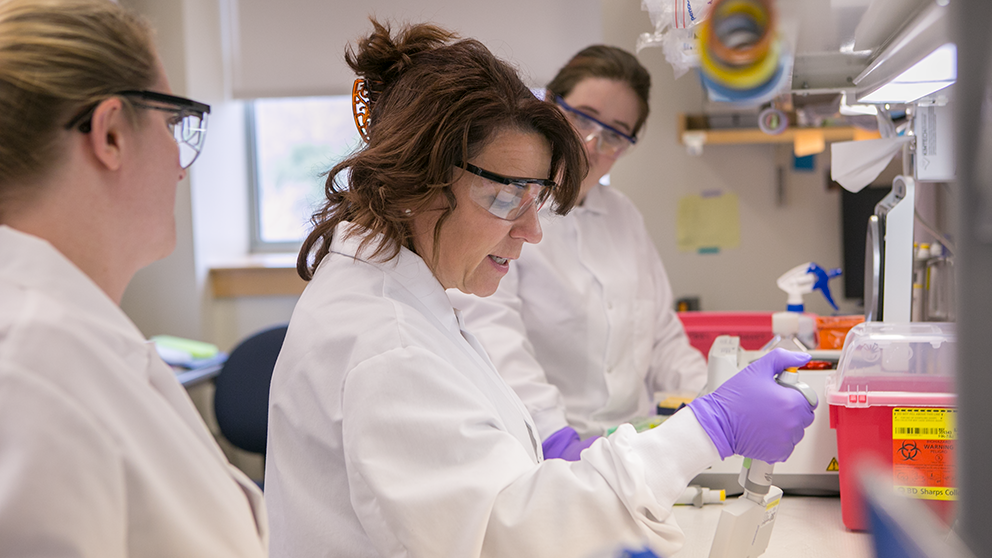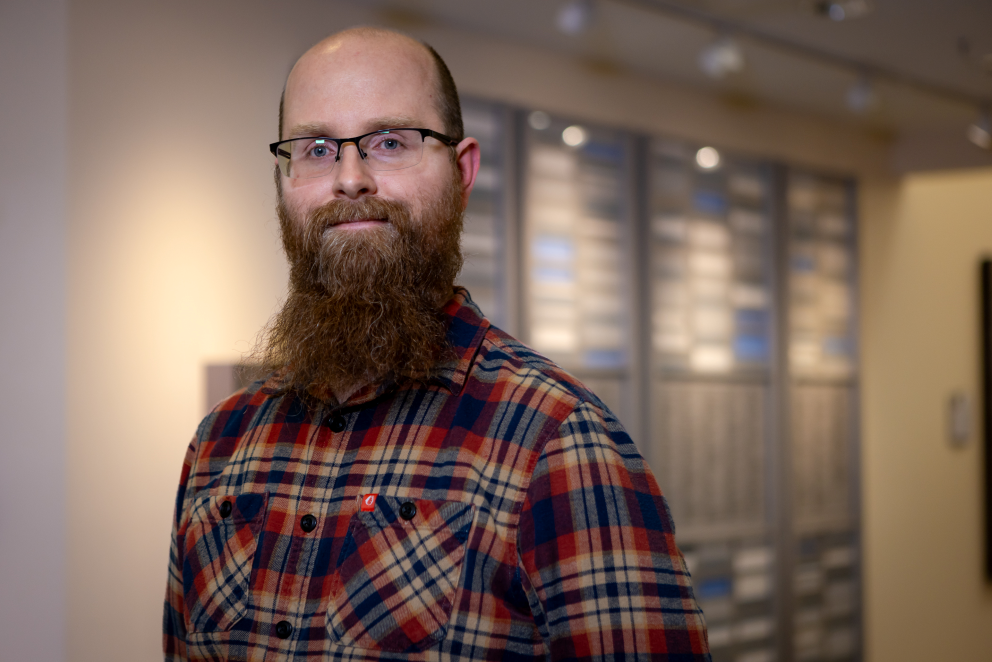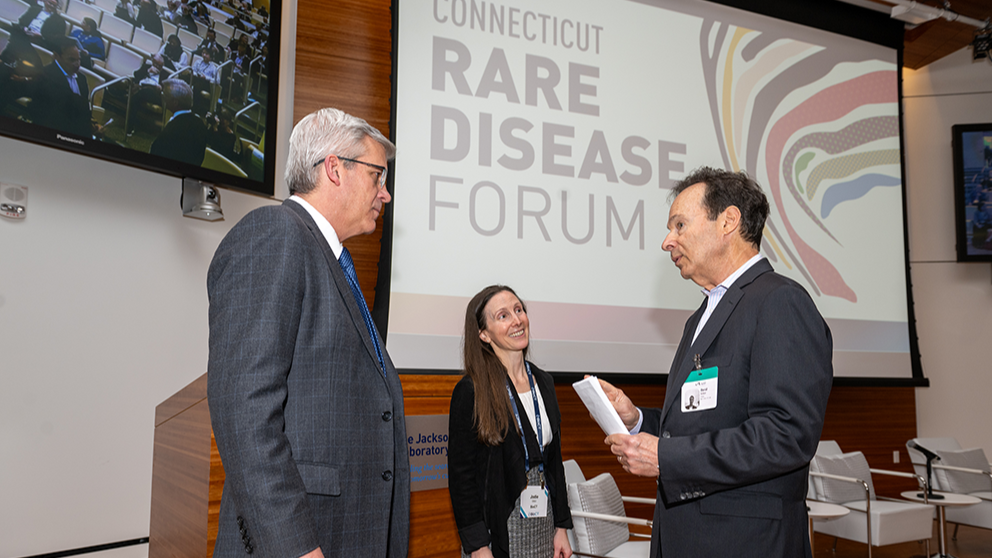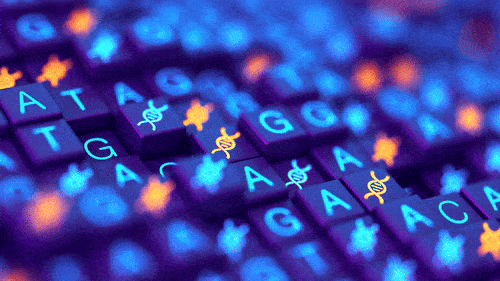Rare Disease Resources
By definition, a rare disease is one that affects fewer than 200,000 individuals in the United States. Because of the small population afflicted by any one illness, funding to investigate causes and treatments tends to be limited, slowing the discovery of potential therapies. Yet with over 7,000 recognized rare diseases, an estimated 350 million people worldwide are affected at any given time.
Here at the Jackson Laboratory, we offer a powerful tool to help fight rare diseases: the mouse model. By leveraging our nearly 100 years of experience in breeding specific types of mice and the power of computation sciences and CRISPR, we have the ability to produce a "mouse model" for researchers to use in order to research potentially lifesaving treatment options for rare diseases. For more information about the mouse model and how JAX uses it, click here.
The fight against rare disease can't be won by JAX alone. Due to the sheer volume of different disease types, it will take a true community effort to search for cures and offer support to those affected by these ailments. In that vein, we have gathered links to different rare disease websites and organizations that people may find useful. Some of these links are for bodies that concern themselves with all rare disease, while others are groups that focus only on a few specific types of disease. Whatever the case, these links have been put together based on factual information, trustworthiness, and helpfulness to the patient community.
Featured resources
Genetic and Rare Diseases (GARD) Information Center
A federal program of the National Center for Advancing Translational Sciences (NCATS) founded in 2002, GARD is funded by the National Institutes of Health (NIH): NCATS and the National Human Genome Research Institute (NHGRI). GARD serves as a searchable platform, free to the public, with reliable information about many types of rare diseases available in English or Spanish.
ClinicalTrials.gov
A database of privately and publicly funded clinical studies conducted around the world, you can simply search for your rare disease to see if there is a clinical trial happening that you may participate in.
National Organization for Rare Diseases (NORD)
Formed in 1983, NORD is one of the earliest champions of rare disease research. Serving as a hub of the rare disease community, NORD strives to connect patients and patient organizations with research and resources to help them in their search for a cure. Their website boasts a tremendous amount of information on many types of rare diseases, informative newsletters, and many other deep links to the rare disease community. You can even find support specific to a diagnosis in NORD’s patient organization database. This also includes organizations that specifically support the disorder.
Rare Diseases Clinical Research Network
Funded by the National Institutes of Health (NIH), the Rare Diseases Clinical Research Network (RDCRN) was established in 2002. The RDCRN has created a network of 23 active research groups that each focus on a group of rare disorders. This network promotes collaboration among scientists as they attempt to better understand how particular rare diseases progress. This collaborative approach is also applied to better diagnosis and treatment options. The website features in-depth information about many rare diseases that they study, as well as patient advocacy groups, research notes, and an ongoing newsletter.
Rare Disease Day
Looking to get involved? Each year, on the last day of February, the rare disease community comes together to raise awareness for the 25-30 million Americans impacted by rare diseases. EURORDIS (The European Organization for Rare Disorders), organizes the official international campaign, and anyone can get help out. Visit RareDiseaseDay.org to learn more and get started!
National Center for Advancing Translational Sciences
Established in 2011, this federal group’s mission is to promote innovative methods and technologies that will enhance the development, testing, and implementation of diagnostics and treatments for a wide range of diseases and conditions. This includes the diagnosis of rare disease. This website features a wide range of information and resources about research and diagnosis, including current news, available funding, current clinical research, and more.
The Jackson Laboratory Rare Disease Translational Center
For the past six years, The JAX has worked with dozens of rare disease foundations and their associated research teams to generate custom mouse models that represent rare conditions in order to pursue new therapeutic interventions. Using CRISPR/Cas9 precision genome engineering, the Center’s expertise has been in assessing the mouse models currently available for rare disorders, determining if new resources are needed and studying rare diseases through these models.
In 2022, the Center enlarged its focus to play an integral role throughout the entire rare disease odyssey – from diagnosis to research to drug development. Utilizing the resources of The Jackson Laboratory for Genomic Medicine based in Farmington, Conn., The Rare Disease Translational Center partners with hospitals and medical institutions as they diagnose rare diseases. The Center also collaborates closely with biotech and pharmaceutical companies to strategize and tailor therapeutics with the aim of accelerating the path to drug discovery for these debilitating conditions.
Taking a holistic approach, the Center is positioned to make a significant impact in the lives of those living with rare diseases.
Disease specific resources
Chordoma Foundation
Founded in 2007, the Chordoma Foundation is a nonprofit that focuses on working with those affected by chordoma. Chordoma is a rare type of cancer that occurs in bones of the skull base and spine. It is part of a group of malignant bone and soft tissue tumors called sarcomas. Chordoma only occurs in about one in a million people a year, meaning there are typically 100,000 people living with it at one time. This website has a depth of resources covering everything from diagnosis to possible treatment of chordoma.
Muscular Dystrophy Association
Founded by a concerned group of families in 1950, MDA is focused on providing high quality information and resources to anyone affected by muscular dystrophy. Going beyond just a database, MDA also sponsors cutting edge research and grant funding targeting MS, ALS, and other neuromuscular diseases. With links, information, and up-to-date research, MDA is a powerful website with a deep well of information on muscular dystrophy.
Parkinson’s Foundation
Founded by the merger of two Parkinson’s foundations in 1957, this nonprofit focuses exclusively on providing support to those affected by Parkinson’s, as well as funding new treatments and providing new research and news. Their features robust information pertaining to Parkinson’s including a “starting place” if you’ve just been diagnosed, deep explanation of the disease, care-taking information, opportunities to get involved to help, and much more.
SMA Foundation
Focused on Spinal Muscle Atrophy (SMA), the SMA foundation was founded in 2003 and is the leading funder of SMA research worldwide. Funding and promoting research tools and other drug discovery assets, the SMA Foundation is mandated to ensure that these research results are available to all SMA researchers with minimum cost. Focused on providing critical information, the SMA Foundation website features a broad amount of information on SMA, including current research, and ways that researchers are combating SMA.
The Snyder-Robinson Foundation
The SRF was founded in 2014 by parents of children diagnosed with SRS. The mission of this group is to advance medical and scientific research into Snyder-Robinson Syndrome and related disorders. This website has information about SRS and its diagnosis as well as current news, research, and opportunities to get involved.







